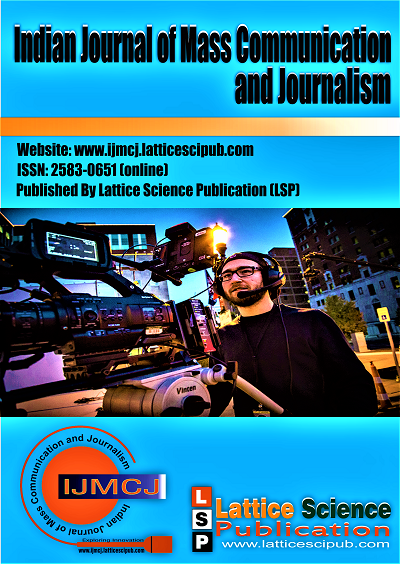Implications of Virtual Classroom Management: A Review of Challenges and Prospects
Main Article Content
Abstract
The COVID-19 pandemic has revolutionised the traditional educational system, requiring schools and universities to implement virtual classrooms as a viable way of continuing operations. This shift has presented several challenges to classroom management, yet it also presents educators with new prospects for engaging their students in the virtual learning space. This review assesses the implications of virtual classroom management, its relevance to current educational practice, and offers strategies for successful implementation. Finally, this review provides a comprehensive overview of the challenges and prospects of virtual classroom management. While the challenges are significant, the potential of virtual classrooms to create meaningful learning experiences is undeniable. It must be harnessed by schools and universities if educational outcomes are to be achieved in the post-pandemic environment.
Downloads
Article Details

This work is licensed under a Creative Commons Attribution-NonCommercial-NoDerivatives 4.0 International License.
How to Cite
References
Biswas, Rajab Ali Nandi, S. (2020). Teaching in Virtual Classroom: Challenges and Opportunities. International Journal of Engineering Applied Sciences and Technology, 5(1), 334–337. DOI: https://doi.org/10.33564/ijeast.2020.v05i01.052
Dung, D. T. H. (2020). The Advantages and Disadvantages of Virtual Schools. IOSR Journal of Research & Method in Education (IOSR-JRME), 10(3), 45–48. DOI: https://doi.org/10.9790/7388-1003054548
Joshua, S. (2018). Introduction to Online Teaching and Learning. In The TESOL Encyclopedia of English Language Teaching (pp. 1–2). DOI: https://doi.org/10.1002/9781118784235.eeltv06b
Khalid, T. M. H. (2022). Classroom Management in Virtual Learning: A Perceptions Study with School Teachers in Qatar. World Journal of English Language, 12(2), 93–101. DOI: https://doi.org/10.5430/wjel.v12n2p93
Kiseleva, M., & Pogosian, V. (2021). Virtual Class Management. SHS Web of Conferences, 97, 1–8. DOI: https://doi.org/10.1051/shsconf/20219701023
Martin, F., Parker, A. M., & Ndoye, A. (2011). Measuring Success in a Synchronous Virtual Classroom. In Student Satisfaction and Learning Outcomes in E-Learning: An Introduction to Empirical Research (Issue January, pp. 249–266). DOI: https://doi.org/10.4018/978-1-60960-615-2.ch011
Piedra, D., & Yudintseva, A. (2020). Teaching in the virtual classroom: Strategies for success. In Journal of Higher Education Theory and Practice (Vol. 20, Issue 12, pp. 192–196). DOI: https://doi.org/10.33423/jhetp.v20i12.3790
Sibanda, L. (2021). Managing Learner Behaviour in a Virtual Classroom: Experiences of Selected Private High School Teachers in Bulawayo Metropolitan Province, Zimbabwe. Journal of Education and Practice, 2(6), 1–15. DOI: https://doi.org/10.7176/jep/12-6-13
Singh, A. K., & Meena, M. K. (2022). Challenges of virtual classroom during COVID-19 pandemic: An empirical analysis of Indian higher education. International Journal of Evaluation and Research in Education, 11(1), 207–212. DOI: https://doi.org/10.11591/ijere.v11i1.21712
Watson, J. (2006). Development and validation of an analytical method for the determination of semicarbazide in fresh egg and egg powder based on the use of liquid chromatography-tandem mass spectrometry. In Analytica Chimica Acta (Vol. 572, Issue 1). DOI: https://doi.org/10.1016/j.aca.2006.05.012
Sharma, P. (2023). Pedagogical Practices in the Technology Intervened Indian Education System. In Indian Journal of Social Science and Literature (Vol. 3, Issue 2, pp. 1–9). DOI: https://doi.org/10.54105/ijssl.k1632.123223
Dr. Chitra S. (2024). Evaluating the Role of STEM Education in Empowering Secondary School Students. In International Journal of Emerging Science and Engineering (Vol. 12, Issue 8, pp. 7–12). DOI: https://doi.org/10.35940/ijese.i2581.12080724
Columbano, M. Q. (2019). Development and Validation of Modules in Basic Mathematics to Enhance Students’ Mathematics Performance. In International Journal of Innovative Technology and Exploring Engineering (Vol. 8, Issue 12, pp. 4203–4207). DOI: https://doi.org/10.35940/ijitee.l2684.1081219
Gurav, R. B., & Lele, M. M. (2019). Development and Validation of Nusselt Number Correlations for Mixed Convection in an Arc-Shape Cavity. In International Journal of Engineering and Advanced Technology (Vol. 9, Issue 1, pp. 526–531). DOI: https://doi.org/10.35940/ijeat.a9646.109119
Islam, M., Mohamed, S. F., Mahmud, S. H., M, A. K. A., & Saeed, K. A. (2020). Towards A Framework for Development of Operational and Maintenance Cost Model of Highway Project in Malaysia. In International Journal of Management and Humanities (Vol. 4, Issue 5, pp. 89–95).DOI: https://doi.org/10.35940/ijmh.e0530.014520





